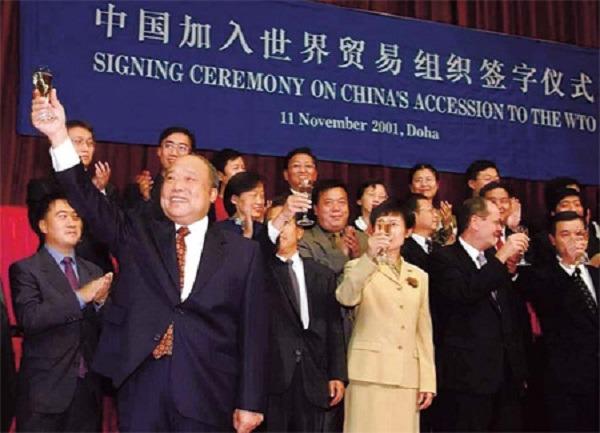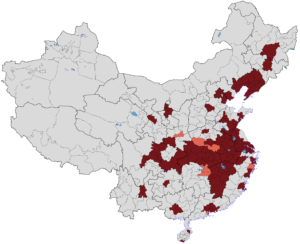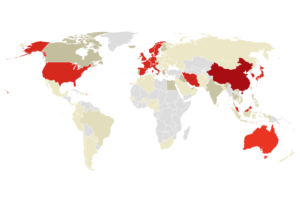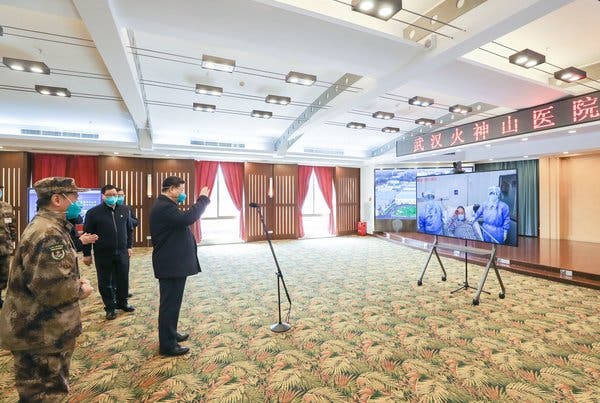Coronavirus’ latest victim in China: VPNs
For most people, 2001 is significant for the September 11 attacks on the US that have continued to impact us politically and economically.
However, something of equal, and arguably, greater importance occurred just 2 months later that has had a far more profound impact on the world as we know it today.
On 11th November 2001, China was officially granted membership of the World Trade Organization.
To put things in perspective, it was because of this membership that foreign companies and MNCs were finally able to invest in China. The underlying belief was that by opening up China to the rest of the world, its notoriously hostile and authoritarian tendencies would evaporate over time.
For a time, this seemed more than just a pipe dream as Jiang Zemin passed a series of reforms that transformed the Chinese economy and moved it towards liberalization, both economically and politically.
China’s History of Digital Tyranny
However, nearly two decades on, China has not one in the trajectory that the world had hoped for. In contrast, the state has become increasingly totalitarian banning tech giants like Google, Facebook, Twitter, YouTube, Dropbox, Flickr, and Foursquare, etc.
Additionally, some of the oldest publications in the world like the New York Times, the Guardian, the Wall Street Journal, and The Economist. China is able to carry out these atrociously authoritarian restrictions thanks to a set of legislations and protocols colloquially known as “the Great Firewall of China”.
Native Chinese, as well as foreigners living inside the country, have had one solitary ally in maintaining unrestricted contact with the world; Virtual Private Networks (VPNs). These VPNs are regularly targeted by the local authorities, so much so that having a Chinese server is often a lucrative selling point for most VPNs.
China’s crackdowns on VPNs usually escalated around controversial dates like the annual anniversaries of the Tiananmen Square Incident, the Yellow Umbrella revolution, or Red August.
New Foe, Old Tactics
More recently, another problem has been plaguing China in the form of COVID-19, known popularly as the coronavirus. While the Chinese authorities have been proactive in dealing with the situation, it has served as the perfect guise for another round of crackdown on VPNs.
Chinese citizens have been kept ominously in the dark over the whole fiasco, how it started, how it went undetected for so long, and most importantly, how the Chinese government itself has been dealing with it.
The manner in which the crisis was dealt with has led to many in China questioning Beijing’s policy of squashing dissent and freedom of speech. A Foreign Policy report exposed Beijing’s initial incompetence in dealing with the disease in its initial stage.
As China did not wish to properly reveal crucial information, residents from Wuhan, where the virus originated, were allowed to travel across China, and around the world.
To make matters worse, this time China’s crackdown on VPNs included the registered VPN services that are allowed to operate in the country provided they abide by the strict censorship guidelines of the government.
This would further corroborate the belief that a common tactic the government uses to stifle down VPNs is through speed throttling that brings most VPN speeds down to a crawl.
New Round of Restrictions
In late February 2020, Chinese President Xi Jinping declared that China was devoting as many resources as necessary to fight against the outbreak while giving a special note of thanks to Bill Gates.
However, his addresses also included a stern warning to anyone attempting to use the situation to cause political strife in China. Immediately, users noted that VPN providers that were still barely functional in the country were shut down as well.
China’s own domestic internet, including popular social media sites like WeChat, Sina Weibo, and Tencent were flooded with information about how the Chinese government had managed to contain the spread of the virus. Weeks later it emerged that the virus had spread out of China and had reached as far as Europe and the US.
Censorship Magnifying Virus’ Effects
It’s important to state here that Europe and the rest of the world have been incredibly forthcoming in the flow of information in dealing with the protective measures being taken to counter the spread of the virus.
Users in these areas are being encouraged to stay updated with the latest information on how to prevent catching the virus.
On the other hand, Chinese citizens have been left bereft of nonpartisan information about the virus and preventive measures against the virus. These authoritarian steps by the Chinese have not gone unanswered as several VPN providers and their engineering departments are already working on new pathways to circumvent these restrictions.
It is a familiar pattern and is almost a custom for the Chinese government to ban a VPN and then for the VPN to come back with more formidable protocols.
Further Censorship Could Prove Lethal
However, such a crisis is unprecedented in China. As a New York Times cover story recently revealed, users in China have been uncharacteristically vocal online in their criticism of the way avenues of information were restricted by the government.
Given this strong reaction by an otherwise docile population, the government will face two ultimate decisions. Either it becomes more transparent in how it deals with information or it ups the ante once again in its crackdown on VPNs.
So far, China has been following the latter option. Xi Jinping visited Wuhan, the center of the virus outbreak on 10th March and reiterated his confidence that the epidemic has been reigned in and would not be allowed to destabilize China’s unity.
With cases of the novel coronavirus emerging in other parts of China as well, it seems that contrary to President Xi’s claims, China faces a long and hard battle against the epidemic.
Back in March 2018, the world was stunned as President Xi Jinping was made “President for Life”. A Chinese flatmate of mine had just returned from a week’s vacation in the country. Naturally, I enquired about what he felt about the latest development. To my surprise, he seemed unaware of the news.
Apparently, a blanket ban on all VPNs was imposed and kept in place…to such an extent that most of its citizens had no clue about such a gigantic development. A similar strategy has been adopted in dealing with COVID-19.
However, unlike most of the previous instances, this round of crackdown could put millions of lives in danger.






